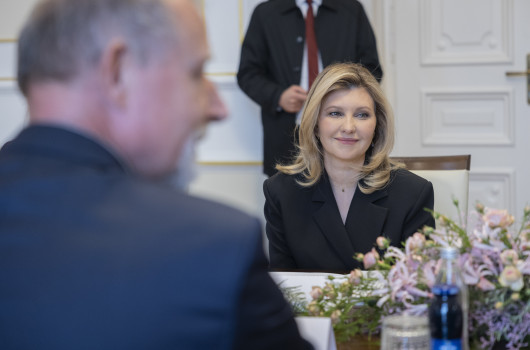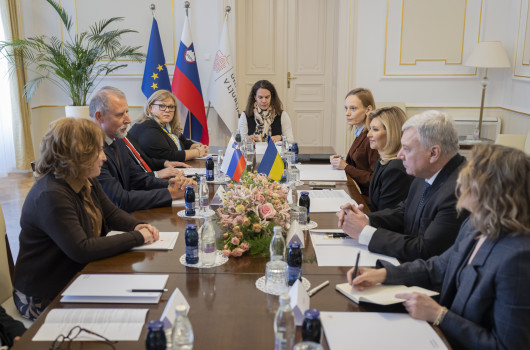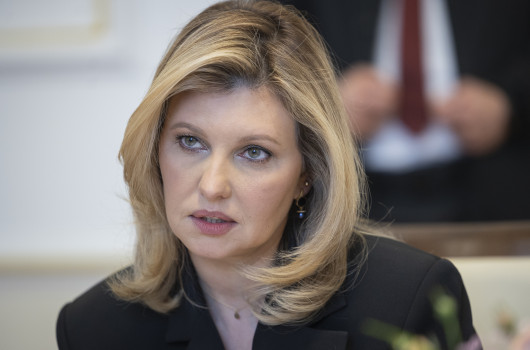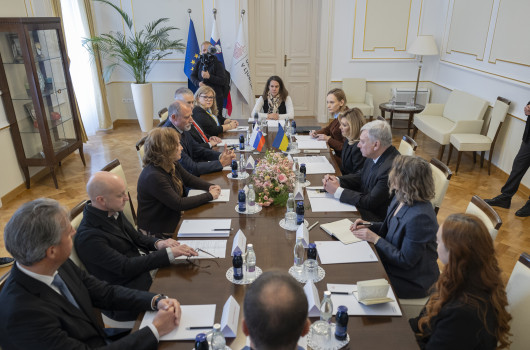Olena Zelenska, spouse of the President of Ukraine, visits the University of Ljubljana
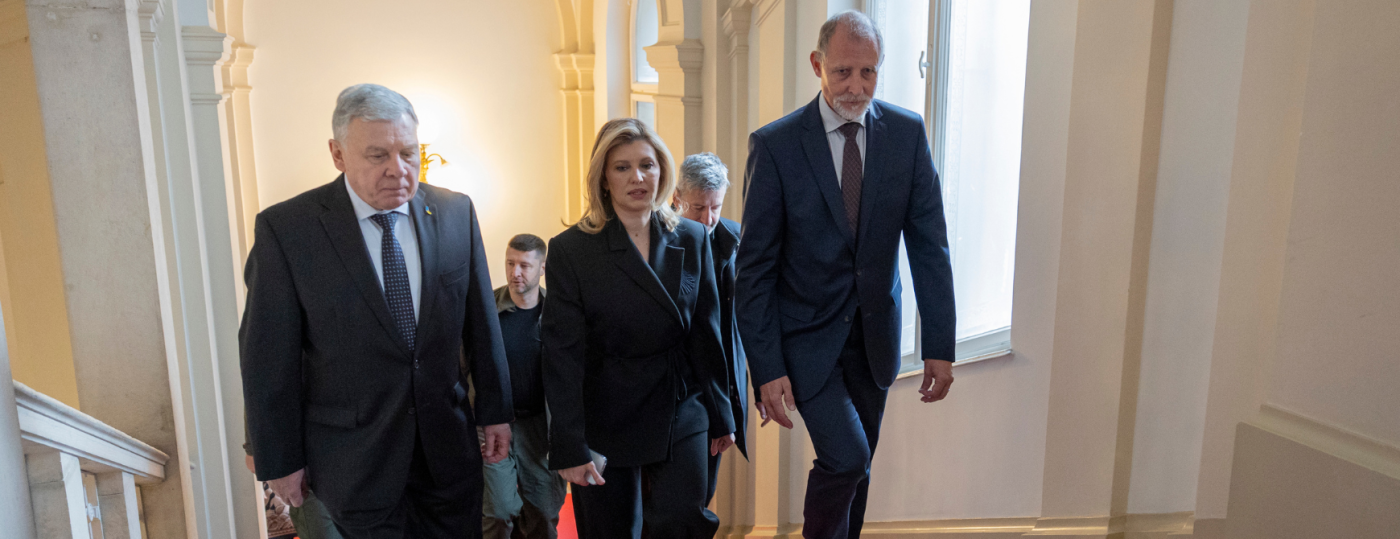
Bor Slana/STA
Date of publication:
On 19 November, Olena Zelenska, the spouse of the President of Ukraine, visited the University of Ljubljana (UL). The Rector of UL, Prof. Dr Gregor Majdič, briefed her on the University’s efforts to support students and professors from Ukraine since the outbreak of the war. He also shared details about the UL’s initiative to establish a Ukrainian language class at the Faculty of Arts.
Over the past two years, the UL Faculty of Arts has accredited courses in Ukrainian Studies. With funding from the Ministry of Higher Education, Science and Innovation, the Ukrainian language class could become operational as early as next year, fostering deeper academic collaboration with Ukraine.
Undergraduate studies of Slovene are already available at two universities in Ukraine – the Taras Shevchenko National University of Kyiv and the Ivan Franko National University of Lviv. At present, students there are enrolled in their first and fourth years of study, and in the coming years they will work on their theses in Slovene Studies. The opportunity to continue their studies in Slovenia will be very beneficial to them.
In May, the Faculty of Philology at the University of Lviv hosted an international conference, which included contributions from participants representing Slovenian universities. The UL’s Faculty of Arts co-organised the event.
The University of Ljubljana currently holds 22 bilateral cooperation agreements with Ukrainian universities. During the last academic year, 130 Ukrainian students studied at the UL, with the number increasing to 155 this year. The UL collaborates with Ukrainian universities on twelve European projects under the Erasmus+, Horizon Europe, and European Territorial Cooperation initiatives. Last winter, the UL organised a three-day international winter school titled Voices of Ukraine under the auspices of the Milan Lenarčič Fund and the UDESIN School. The programme aimed to introduce students to Ukraine’s cultural heritage, language, and history while fostering long-term academic exchanges between the two academic communities. It also sought to promote mutual understanding and highlight the importance of nurturing a generation committed to global justice, peace, and solidarity.

